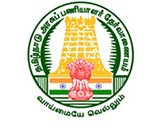TNPSC District Child Protection Officer DCPO Exam Syllabus 2022
Organisation : Tamil Nadu Public Service Commission (TNPSC)
Exam Name : District Child Protection Officer (DCPO) Examination, 2022
Announcement : TNPSC DCPO Exam Syllabus
Website : https://www.tnpsc.gov.in/English/Notification.aspx
What is TNPSC DCPO Exam?
District Child Protection Officer (DCPO) Examination is organised by Tamil Nadu Public Service Commission (TNPSC). The qualification for child protection officer is In order to apply, a c&idate must have a degree in Sociology or Social Work or Psychology or Child Development or Criminology of any University or Institution recognized by theUniversity Grants Commission or Institution recognized by the Government.
Related / Similar Syllabus : TNPSC Psychologist Exam Syllabus 2022

Syllabus For TNPSC DCPO Exam
The Syllabus For TNPSC DCPO Exam are given below,
SOCIOLOGY – UG DEGREE STANDARD
UNIT-I: INTRODUCTION TO SOCIOLOGY
Definition & Meaning of Sociology, Basic concepts: Society, Community, Culture, Association, Socialization.
Social Institutions: Family, Marriage, Education, Religion, Caste, Class, Politics.
UNIT-II: SOCIOLOGICAL THINKERS
August Comte: Law of Three stages; Social Statics & dynamics. Herbert Spencer: Theory of Evolution, Organic Analogy, Social Darwinism. Emile Durkheim: Social facts, Suicide, Division of labour.
Max Weber: Social action, ideal types, bureaucracy & The Protestant Ethic & the Spirit of Capitalism. Karl Marx: Historical materialism, Social Change, Class struggle, alienation.
UNIT-III: RURAL AND URBAN SOCIOLOGY
Rural: Rural – urban contrast. Characteristics of Rural society. Agrarian class structure. Panchayatraj system. Rural development programmes.
Urban: Meaning, Characteristics of urbanisation & its impact, Urban sociological theories- Tonnies, Georg Simmel, Max Weber, Robert Park, Louis Wirth & Ernest Burgess, Homer Hoyt, Harris & Ullman.
UNIT-IV: SOCIAL PROCESSES, SOCIAL CHANGE, AND SOCIAL CONTROL
Associative & dissociative processes. Features, causes & sources of social change. Meaning, purposes, types, & agencies of social control.
UNIT-V: INDIAN SOCIAL REFORMERS AND CHILD PROTECTION
Contributions of Mahatma G&hi, EVR Periyar, Anne Besant, Raja Ram Mohan Rai, Jyotiba Phule, Savitriba Phule, Muthulakshmi, Ambedkar, Mother Teresa.

UNIT-VI: SOCIOLOGY OF MARGINALISED
Marginalization & its socio economic indices. The culture of marginalised
communities – SC, ST, Nomadic Castes & Tribes & De-notified Tribes,
transgender, religious minorities, differently abled, aged, HIV/AIDS. Constitutional
Provisions, Implementation, & Impact on Marginalized.
UNIT-VII: CHILDREN WITH DIFFICULT CIRCUMSTANCES
Sex preference, female infanticide, Girl child, neglected, orphan, ab&oned, street children, child abuse, child labour, children with disabilities (CwD), Child marriage.
UNIT-VIII: CONSTITUTIONAL PRIVILEGES TOWARDS CHILDREN
Children Related Policies & Acts: Constitutional Provisions for Children in India;
National Policy for Children (1974 & 2013); Current policies & trends – Child
Welfare; Children Acts – JJ Act, Protection of Children, from Sexual Offences Act
(POCSO), 2012, Child Labour (Abolition & Prohibition) Act 1986 ,
The Prohibition of Child Marriage Act 2006 – Bonded Labour (Abolition) Act 1976.
UNIT-IX: AFFIRMATIVE ACTIONS FOR CHILD WELFARE
Institutional services:- Short-stay homes. Foster home. Facilities/services for children of unmarried mothers, Juvenile homes.
Non- Institutional services Anganawadi, Day-Care Centres, Crèches, Child Guidance Centres, Services through nursery/primary school, Services for children in need of special care – Schools for Mentally Retarded, Blind, Deaf & Dumb & Physically H&icapped Children.
UNIT-X: CHILDREN AND STAKEHOLDERS
Children Stakeholders: Ministry of Women & Child Development: Roles & Functions – Central & State Level Commission for Protection of Child Rights in India; Roles & Functions National Institute of Public Cooperation & Child Development; Roles & Functions of Civil Society & civil society organisations.
PSYCHOLOGY
UNIT-I : INTRODUCTION
Psychology – Definition, History, Goals, Branches, Scope, Research Methods in
Psychology – Observation, Correlation, Experiment, Case study. Ethics in
Research.
Biological Basis of Behaviour – Neurons, Nervous system, Brain, Heredity &
Behaviour.
UNIT-II: ATTENTION, PERCEPTION AND CONSCIOUSNESS
Attention – Definition & kinds of attention.
Perception – Definition, Perceptual organization, Perceptual constancy,
illusion, factors affecting perception.
Consciousness – Definition, Biological rhythm, Waking states, Sleep,
Consciousness altering drugs.
UNIT-III: LEARNING AND MEMORY
Learning – Definition, Classical conditioning, Operant conditioning, Observational learning, Latent learning, Insight learning.
Memory – Definition, Process, Models, Types of memory.
Forgetting – Meaning, Causes, Memory distortion, Improving memory
CHILD DEVELOPMENT
UNIT 1 : GROWTH AND DEVELOPMENT
1.1 Definition & Distinction of growth & development
1.2 Principles of growth & development
1.3 Factors affecting growth & development
1.4 Domains of development & its interrelatedness
UNIT 2 : THEORIES OF HUMAN BEHAVIOUR AND DEVELOPMENT
2.1 Learning & behavioural theories – Pavlov‟s Classical conditioning, Skinner‟s
operant conditioning, Watson behaviourism, B&ura‟s social learning theory
2.2 Language theories – Behaviourist perspective, Nativist perspective &
Interactionist perspective
2.3 Cognitive theories – Piaget‟s Cognitive theory
2.4 Psycho-analytic theories – Freud‟s psycho-analytic theory, Erikson‟s psycho-social theory
2.5 Moral development theories – Piaget‟s moral theory, Kohlberg‟s moral theory
Notification : http://www.syllabus.gen.in/uploads/pdf2022/2639-note.pdf
UNIT 3: STAGES/PERIODS OF CHILD DEVELOPMENT
3.1 Five stages of child development & its characteristics – Prenatal, Infancy & Toddlerhood, Early childhood, Late childhood & Adolescence
3.2 Havighurst‟s Developmental Tasks – Infancy to Adolescence
3.3 Concept & importance of developmental milestones